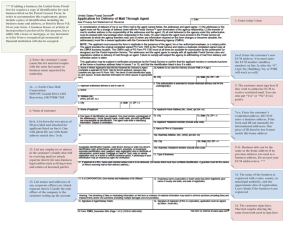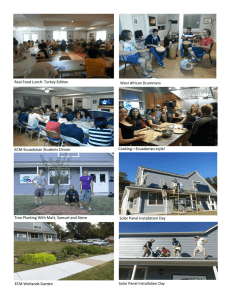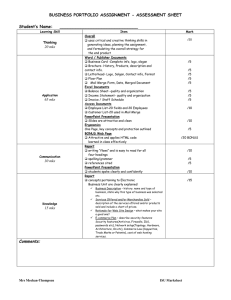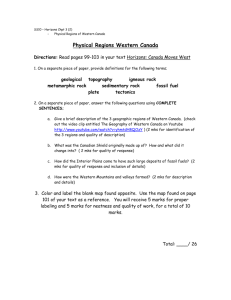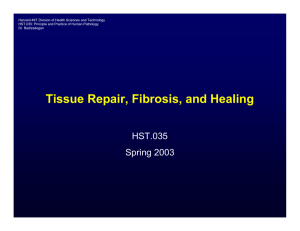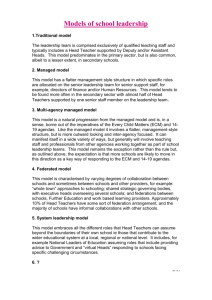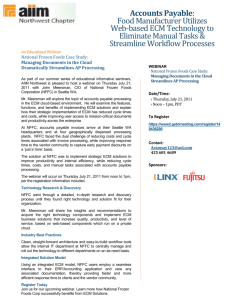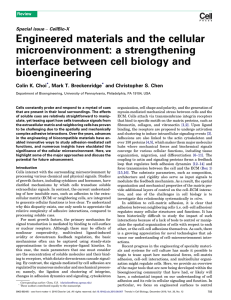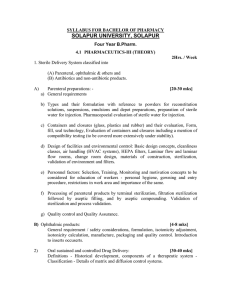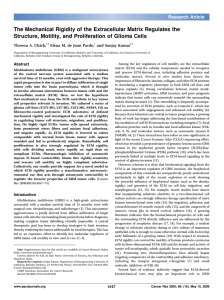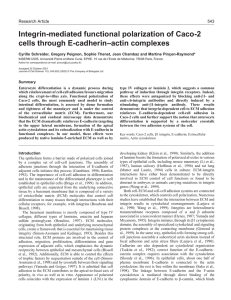Cell adhesion and matrix production in Meckel Gruber syndrome Dr Helen Dawe 15
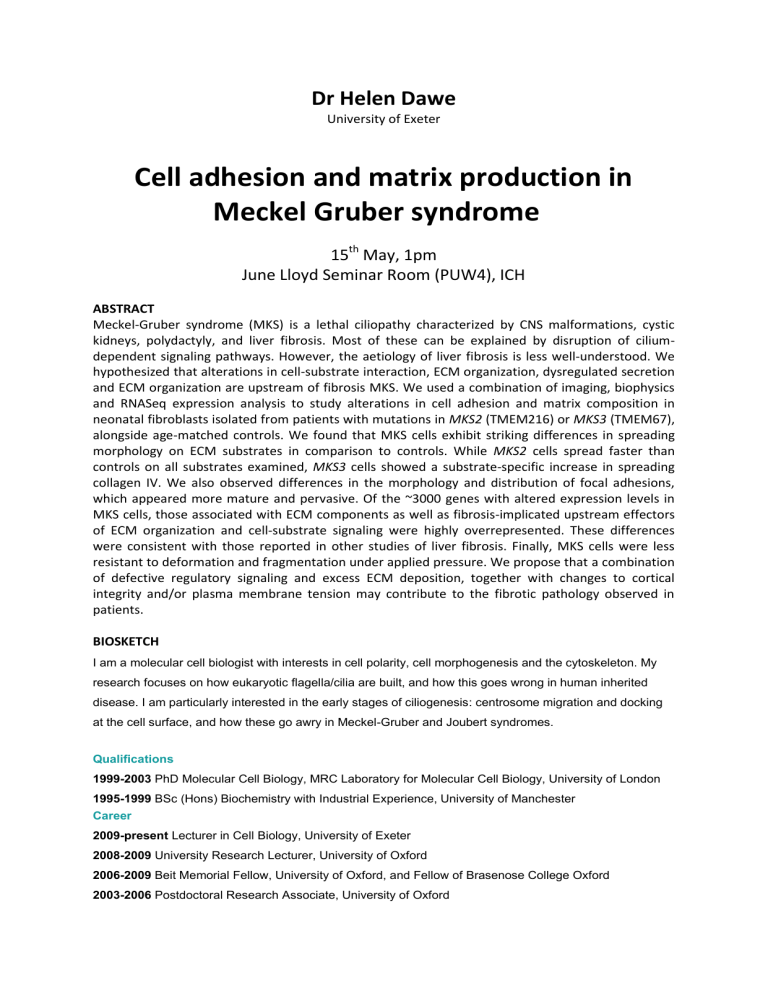
Dr Helen Dawe
University of Exeter
Cell adhesion and matrix production in
Meckel Gruber syndrome
15
th
May, 1pm
June Lloyd Seminar Room (PUW4), ICH
ABSTRACT
Meckel-Gruber syndrome (MKS) is a lethal ciliopathy characterized by CNS malformations, cystic kidneys, polydactyly, and liver fibrosis. Most of these can be explained by disruption of ciliumdependent signaling pathways. However, the aetiology of liver fibrosis is less well-understood. We hypothesized that alterations in cell-substrate interaction, ECM organization, dysregulated secretion and ECM organization are upstream of fibrosis MKS. We used a combination of imaging, biophysics and RNASeq expression analysis to study alterations in cell adhesion and matrix composition in neonatal fibroblasts isolated from patients with mutations in MKS2 (TMEM216) or MKS3 (TMEM67), alongside age-matched controls. We found that MKS cells exhibit striking differences in spreading morphology on ECM substrates in comparison to controls. While MKS2 cells spread faster than controls on all substrates examined, MKS3 cells showed a substrate-specific increase in spreading collagen IV. We also observed differences in the morphology and distribution of focal adhesions, which appeared more mature and pervasive. Of the ~3000 genes with altered expression levels in
MKS cells, those associated with ECM components as well as fibrosis-implicated upstream effectors of ECM organization and cell-substrate signaling were highly overrepresented. These differences were consistent with those reported in other studies of liver fibrosis. Finally, MKS cells were less resistant to deformation and fragmentation under applied pressure. We propose that a combination of defective regulatory signaling and excess ECM deposition, together with changes to cortical integrity and/or plasma membrane tension may contribute to the fibrotic pathology observed in patients.
BIOSKETCH
I am a molecular cell biologist with interests in cell polarity, cell morphogenesis and the cytoskeleton. My research focuses on how eukaryotic flagella/cilia are built, and how this goes wrong in human inherited disease. I am particularly interested in the early stages of ciliogenesis: centrosome migration and docking at the cell surface, and how these go awry in Meckel-Gruber and Joubert syndromes.
Qualifications
1999-2003 PhD Molecular Cell Biology, MRC Laboratory for Molecular Cell Biology, University of London
1995-1999 BSc (Hons) Biochemistry with Industrial Experience, University of Manchester
Career
2009-present Lecturer in Cell Biology, University of Exeter
2008-2009 University Research Lecturer, University of Oxford
2006-2009 Beit Memorial Fellow, University of Oxford, and Fellow of Brasenose College Oxford
2003-2006 Postdoctoral Research Associate, University of Oxford
